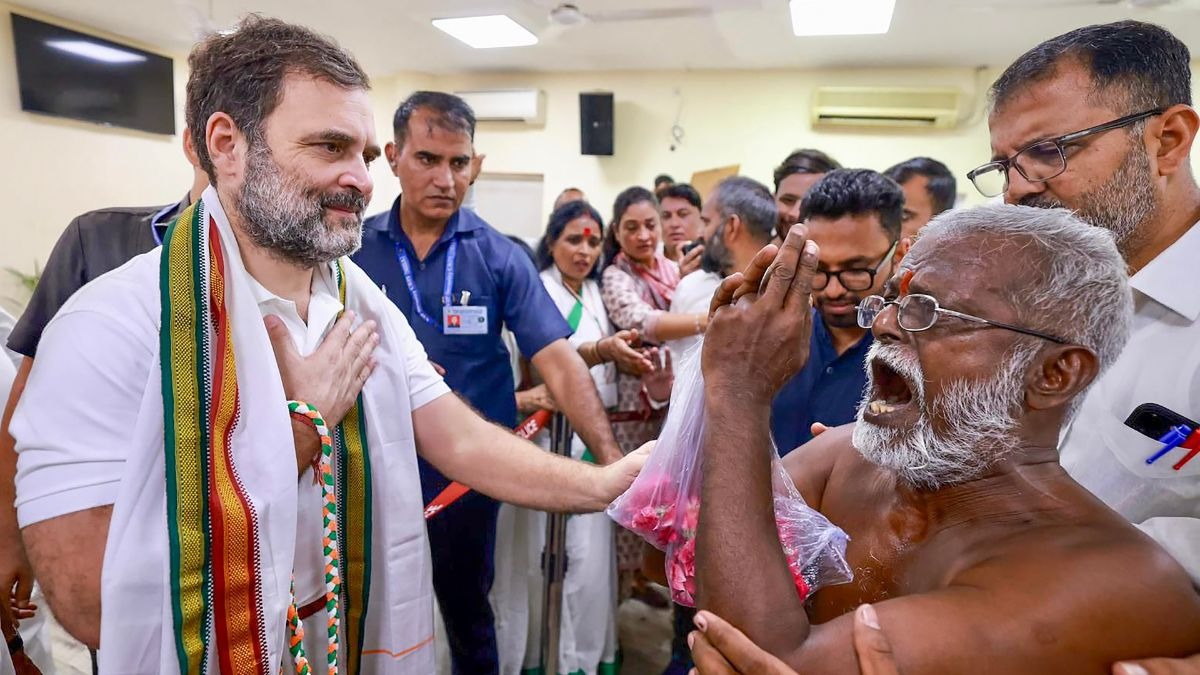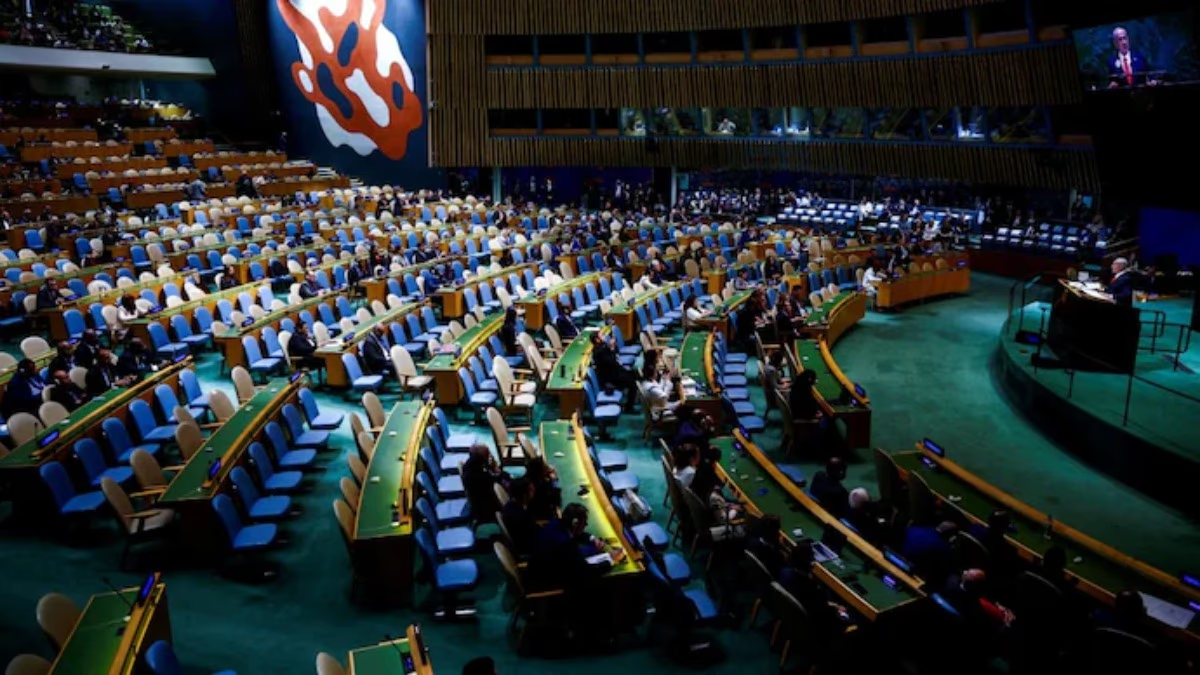In the general elections of 2014 and 2019, Congress didn't manage to secure enough seats to claim the leader of the opposition role, leaving it to Mallikarjun Kharge and later to Adhir Ranjan Chowdhury to unofficially take up the mantle in the Lok Sabha - and it's a twist of fate that both subsequently lost their subsequent elections.
If Rahul Gandhi isn't hindered by superstition, he should step forward and take this post - as the electorate has given the nation a strong government in the last two elections and has now also provided a robust opposition.
Congress, after continuous improvement in their performance, has won more than 10% of the seats in the Lok Sabha in the 2024 elections, securing the title of leader of the opposition with 99 out of 543 seats. This is an upswing from 44 seats in 2014 and 52 in 2019 – both below the required 54.
The last to hold the position from BJP was Sushma Swaraj from 2009 to 2014. The 18th Lok Sabha's first session is slated to begin on June 24th and will end on July 3rd. During this nine-day special session, the election of the Lok Sabha Speaker will take place, and new MPs will be sworn in - and a leader of the opposition will be chosen.
After Congress's defeat in the 2019 elections, Rahul Gandhi resigned as the president, insisting on choosing a leader outside the Gandhi family. Eventually, Mallikarjun Kharge was elected as president through a democratic process, after defeating Shashi Tharoor.
The desire within Congress is for Rahul Gandhi to take up the leadership role as the opposition in the Lok Sabha, while Mallikarjun Kharge leads in the Rajya Sabha. Sonia Gandhi has now also entered the Rajya Sabha, and there's a movement for Priyanka Gandhi Vadra to enter the Lok Sabha.
Reports suggest that Rahul Gandhi is reluctant to become the opposition leader in the Lok Sabha. Despite claiming he has no interest in power politics, this decision will be in the broader national interest.
It's about respecting the mandate
Voters across the country chose their MPs, but nationally, Rahul Gandhi was the face to bet on. UP, which ousted him from Amethi in 2019, notably gave six seats to Congress this time.
Whether few or many, the people voted for Congress as the alternative to BJP. Undoubtedly, the youth have also voted for change.
People have indeed voted for the unannounced leadership of the opposition coalition helmed by Congress. If Rahul Gandhi steps up as the leader, it wouldn't just be advantageous - it would honor the democratic mandate.
The Congress Working Committee (CWC) has fulfilled its duty by endorsing Rahul Gandhi for the role. Rumors say he has declined the offer as he did with the party presidency.
During a conference where Mallikarjun Kharge announced Rahul Gandhi would retain Rae Bareli, and Priyanka Gandhi Vadra would contest Wayanad, there was speculation on alternative opposition leader candidates like Kumari Selja, Gaurav Gogoi, and Manish Tewari.
Kumari Selja from Haryana is close to Sonia Gandhi. Gaurav Gogoi is favored by Rahul and has made a mark with several impactful speeches in the past Lok Sabha.
Manish Tewari, a professional lawyer and former minister, is the joint candidate from the Congress and AAP, winning from Chandigarh.
With Rahul Gandhi as the leader of the opposition, there are multiple benefits - including increased acceptance of his leadership.
What benefits will Rahul Gandhi as leader of the opposition bring?
1. Dominance in the opposition will grow:
Rahul Gandhi stepping up would boost the morale of Congress MPs and the party as a whole. During the ED office inquiry, Congress workers showed readiness to support Sonia Gandhi on the streets, but were reluctant on behalf of Rahul Gandhi.
Other opposition leaders like Sharad Pawar have quieted down, but some, like Mamata Banerjee, are hesitant to recognize Rahul Gandhi as their leader. If Rahul Gandhi takes up this role, it might soften their stance.
If he can foster better alliances with opposition parties, it would slowly build his acceptability as a leader.
2. Maturity will grow, and public image will improve:
Speaking off the cuff and speaking in parliament are different. Parliamentary speeches demand a measured approach. Becoming the leader of the opposition might bring a needed gravity to his demeanor.
3. The opposition will become more assertive against the ruling party:
Rahul Gandhi has already shown aggression on issues like Adani and that energy could be sharpened in the parliament if he becomes the leader of the opposition.
4. A positive role in appointments:
As the leader of the opposition, Rahul Gandhi could play a pivotal role in top bureaucratic appointments such as ED, CBI, Vigilance chiefs, and others.
5. Cabinet minister status:
The leader of the opposition is granted the status and benefits equal to a cabinet minister. Even if such privileges might not interest Rahul Gandhi, becoming the leader might help him evolve as a better leader, akin to how Naveen Patnaik became a constructive opposition leader after electoral defeats.




